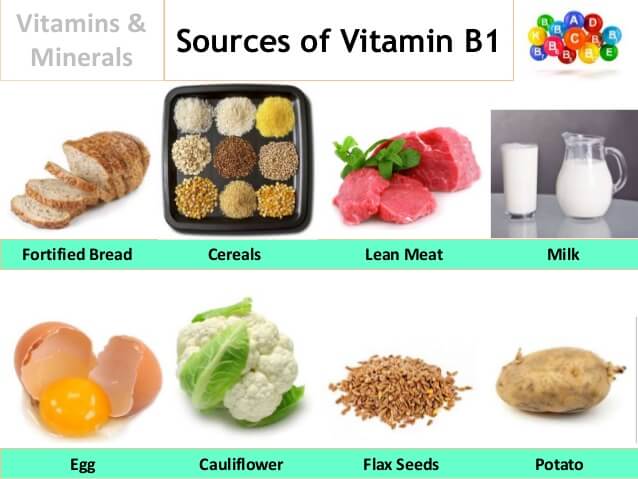Benefits. Vitamin B1, or thiamin, helps prevent complications in the nervous system, brain, muscles, heart, stomach, and intestines. It is also involved in the flow of electrolytes into and out of muscle and nerve cells.
Vitamin B1 Pills/Thiamine- Buy Vitamin B1 Pills/Thiamine In Nairobi Kenya Uganda Tanzania Somalia Ethiopia Sudan Vitamins Store
$70
Description
9 Benefits of Vitamin B1 Pills/Thiamine + Sources, Dosage
Generally ,Thiamine or Vitamin B1, is an essential nutrient required by the body. Similary it has many health benefits, from protecting the brain and heart to boosting the immune system. Let look at Vitamin B1 Pills/Thiamine.
What is Vitamin B1 Pills/Thiamine?
Firstly Thiamine, also known as Vitamin B1, is essential for every tissue in the body. Secondly It is a cofactor for enzymatic reactions in the skeletal muscles, heart, liver, kidney, and brain .
Thirdly Ingested Vitamin B1 from food and dietary supplements is absorbed by the small intestine through active transport at nutritional doses and by passive diffusion at pharmacological doses .
In addition Most dietary Vitamin B1 is in phosphorylated forms, and intestinal phosphatases hydrolyze them to free thiamine before the vitamin is absorbed.
Snapshot
- Firstly it is Vital for metabolism
- Secondly it Boosts the Immune system
- Similarly it Supports brain function
- In the same vein it Helps digestion
- Finally it Protects the heart

Functions & Benefits of Thiamine
1) Metabolism
Generally The body needs Vitamin B1 to make ATP, the body’s main energy-carrying molecule.
In addition Thiamine helps in the conversion of carbohydrates into glucose. In the same vein It also helps break down proteins and fats .
Sugar Metabolism
Thiamine (as thiamine diphosphate, the main active form of the vitamin) is essential to glucose metabolism .
2) Vitamin B1 Pills/Thiamine Immunity
Generally Like other B-complex vitamins, Vitamin B1 is sometimes called an “anti-stress” vitamin.
Amazingly, Giving rats a Vitamin B1 blocker caused a significant decrease in immune system function.
3) Brain
Notably Previous studies have reported low levels of thiamine and pyruvate dehydrogenase dysfunction in patients with ataxia, a condition that causes loss of movement. In addition Long-term treatment showed significant improvements.
Generally Vitamin B1 appears to help with the development of the myelin sheath, a coat that wraps around nerves to protect them from damage and death .
However in the brain, it is required both by the nerve cells and by other supporting cells in the nervous system .
Similarly Autopsy studies have shown that thiamine-dependent enzymes have decreased activity in the brains of people with Alzheimer’s disease .
Vitamin B1 Pills/Thiamine & the Brain
Generally ‘High-dose thiamine improved fatigue in patients after stroke.
Similarly Some researchers suspect that vitamin B1 therapy might have a favorable impact on neurodegenerative diseases .
Furthermore research needs to be done before any conclusions can be made about whether it can help people with neurodegenerative conditions.
4) Cardiovascular Health
Importantly Thiamine is vital to the function of the cardiovascular system, and thiamine deficiency can cause congestive heart failure.
5) Cataracts
On the same vein recent studies suggest that thiamin may lower the risk of developing cataracts. Similarly These studies show that people who ingest plenty of protein along with vitamins A, B1, B2, and B3 (or niacin) in their diet are less likely to develop cataracts. Likewise Getting enough vitamins C, E, and B-complex vitamins further protect the lens of the eye .
6) Vitamin B1 Pills/Thiamine Digestion
In the same vein Thiamine is also necessary for the proper functioning of the digestive system. Additionally Vitamin B1 helps to regulate the production of hydrochloric acid, which is needed for maintaining proper digestive function .
Sources of Vitamin B1 Pills/Thiamine
| Food | Serving | Thiamin (mg) |
| Lentils (cooked, boiled) | ½ cup | 0.17 |
| Green peas (cooked, boiled) | ½ cup | 0.21 |
| Long-grain, brown rice (cooked) | 1 cup | 0.19 |
| Long-grain, white rice, enriched (cooked) | 1 cup | 0.26 |
| Long-grain, white rice, unenriched (cooked) | 1 cup | 0.04 |
| Whole-wheat bread | 1 slice | 0.10 |
| White bread (enriched) | 1 slice | 0.23 |
| Fortified breakfast cereal (wheat, puffed) | 1 cup | 0.31 |
| Wheat germ breakfast cereal (toasted, plain) | 1 cup | 1.88 |
| Pork, lean (loin, tenderloin, cooked, roasted) | 3 ounces* | 0.81 |
| Pecans | 1 ounce | 0.19 |
| Spinach (cooked, boiled) | ½ cup | 0.09 |
| Orange | 1 fruit | 0.11 |
| Cantaloupe | ½ fruit | 0.11 |
| Milk | 1 cup | 0.10 |
| Egg (cooked, hard-boiled) | 1 large | 0.03 |
| *3 ounces of meat is a serving about the size of a deck of cards | ||









